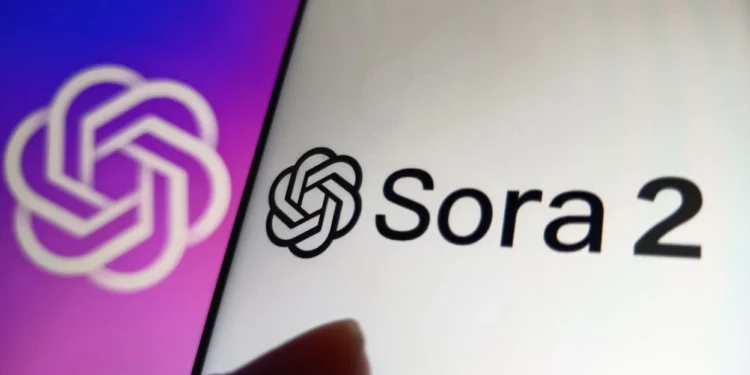Artificial intelligence has been around for a while, shaping how Africa works, creates, and builds. Across the continent, algorithms are becoming part of everyday workflows. Designers sketch with Figma AI. Developers debug with Copilot.
Meanwhile, writers brainstorm with ChatGPT. The creative process is no longer a solo act; it is a collaboration between human instinct and machine precision.
Across cities like Lagos, Nairobi, and Cape Town, this shift is moving fast. Startups are adopting AI tools as part of their daily tasks. What once felt futuristic now drives productivity in design, fintech, and storytelling. The conversation has moved from “Will AI take our jobs?” to “How do we evolve to work with it?”
That question echoed through the Untitled Designers Conference 2025 (UDC2025) in Lagos. The theme, Creative Possibilities: Designing Africa’s Future with Intelligence, captured the mood perfectly. The talks, panels, and conversations circled one idea: AI is not replacing creativity; it is redefining it. Yet, as designers explored these tools, it became clear that Intelligence alone is not enough. The future will depend on how well humans learn to think with machines.
What Designers Are Saying
At UDC2025, Techsoma spoke with a few designers to understand how this wave of intelligence is changing the way they work. The answers were layered, almost like the technology itself. Some were optimistic, others hesitant, but everyone could agree that the ground is shifting.
Eniola, a product designer at a fintech company, approached AI from a regulatory lens. “We should be very careful,” she said. “There are things AI should not take control of, like giving financial advice.” For her, it is a question of balance. Designers, she added, should work with AI, not surrender to it. “It cannot stand independently yet.”
Olumide was more direct. “AI is the future. It helps you not to start from scratch,” he said. “If you do not use AI, someone who does will trump you, and that is the reality.” His view reflects a growing acceptance that, in the modern tech economy, resistance is a luxury. The tools are here to stay.
For Obasola, the relationship feels more collaborative. “AI is an addition,” he said. “It is not something that would take over.” He believes design still depends on context and cultural understanding, something no algorithm can fully replicate.
Then there is Kati, who uses AI daily. “It helps me find inspiration,” he said. “It is like a brainstorming tool.” To him, AI is not a threat but a creative partner that helps translate half-formed ideas into direction.
Between their perspectives runs a common thread of curiosity mixed with caution. African designers are testing, adapting, and, rather than embracing this development blindly, learning to shape it with intention.
Beyond the Conference
Beyond UDC2025, the conversation about AI is spreading fast across Africa’s tech landscape. The continent’s creative and digital sectors are testing what intelligent tools can really do. In fintech, AI powers credit scoring and fraud detection. In media, it drives personalised content and automated production.
Meanwhile, in education, it tailors learning experiences for students in remote regions.
For the creative industry, the effect feels both disruptive and empowering. Freelancers now use AI to generate mock-ups and marketing copy in record time. Agencies explore AI-driven design workflows to meet faster client demands.
Even small startups are experimenting with language models trained on African data, building products that understand accents, idioms, and cultural cues that global systems often miss.
Still, the enthusiasm comes with limits. Many designers worry about authenticity and creative ownership. Some say it feels like cheating. Others raise ethical concerns about data use and job displacement. As adoption grows, regulation has not quite caught up. Most African countries are still defining what responsible AI looks like in local contexts.
However, there is no denying the opportunity. AI has opened new markets, lowered barriers, and given creators access to tools that were once unreachable. For a continent long sidelined in global tech narratives, this feels like a moment to shape the story, not just consume it.
Sora 2: The Bridge Between Creativity and Cinematic Intelligence
The next phase of this transformation is already unfolding with Sora 2, OpenAI’s groundbreaking text-to-video model. If UDC2025 was a window into Africa’s creative intelligence, Sora 2 is the door to its next frontier.
Sora 2 allows creatives to turn textual concepts into cinematic sequences that rival studio-level production. For African designers, filmmakers, and storytellers, it levels a historically uneven playing field. What once required millions in equipment can now begin with a prompt and a vision.
Imagine a fashion designer visualising a runway experience in seconds, or a filmmaker testing scene compositions before ever picking up a camera. Sora 2 is not just a tool; it is a creative collaborator that translates imagination into motion.
For a continent rich in stories but constrained by budgets, Sora 2 offers a new way to build visual narratives that resonate globally while remaining rooted in local authenticity.
Are African Creators Exploring Sora 2 Enough?
Early signs show curiosity is rising, but widespread exploration is still limited. Across Nigeria, Kenya, and South Africa, a few creators are experimenting with Sora 2 for concept videos, short promos, or virtual production testing; yet full-scale adoption remains slow.
There are several reasons. Access remains restricted as Sora 2’s rollout is still limited to select users. Many African creators lack the computing power, bandwidth, or training required to maximise it. Others are simply unaware of its creative potential.
The cost of experimentation is another factor. Even when creators are eager, unstable power and data infrastructure limit consistent use. Beyond logistics, there is also a trust gap and a need to clarify ownership, ethical use, and cultural representation in AI-generated content.
Still, where creators have adopted it, results are remarkable. Nigerian digital artists have begun blending Sora 2 visuals into Afrofuturist storytelling, while small creative studios in Nairobi use it for visual pre-production.
Ghanaian motion designers are experimenting with AI-powered short films that mix human acting with generated scenes.
Tools like Runway, Pika, and Synthesia are also gaining ground as accessible AI companions. However, Sora 2, with its realism and narrative coherence, represents a qualitative leap.
What Africa needs now is training and awareness, not just access. Community hubs, art schools, and accelerators should create AI-first design labs where creators can experiment safely and collaboratively. If adoption is driven by cultural understanding rather than imitation, Africa could lead the world in ethical, imaginative AI storytelling.
Designing with, Not Against, Intelligence
If there is one lesson from UDC2025, it is that intelligence and intention define the future. The real power of AI lies in how it extends human thinking, not replaces it. Across the continent, designers are beginning to realise that the goal is not to compete with algorithms but to collaborate with them.
Creativity has always been Africa’s advantage. What AI introduces is the ability to turn ideas into systems, to translate imagination into measurable outcomes. The challenge is ensuring that automation does not erase authenticity in the process.
Now, a new kind of designer is emerging — one who sketches with AI, directs with Sora 2, and builds with context as their core code. They understand that vision defines craft, not tools. As a result, the question is no longer whether AI will shape Africa’s creative future, but how Africa’s creators will shape AI in return.
















